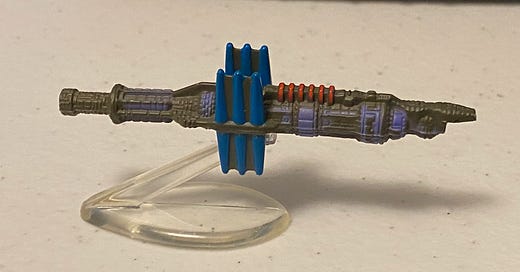I’ll be honest. I didn’t start watching the syndicated science fiction TV series Babylon 5 until late in season 3. But as soon as I started watching it I was hooked. When it went from syndication to TNT and they began airing the earlier episodes, I saw them all. To this day just thinking about the last episode of the five-season series causes me to get a little teary-eyed. Or a lot; it’s a heart-breaker.
You therefore wouldn’t be surprised that B5 has indeed had an impact on my writing.
First, though, let me explain a few things about the series. It was the first genre series to have both story arcs and character arcs. It pioneered the use of CGI on a TV budget. There was also a great deal of world-building throughout, even well into the final season. This is where I’m going to start with talking about the show’s influence on my writing.
While Star Trek has a very optimistic future, it’s sometimes hard to see how it could be real. How can Starfleet pay for all those starships? Especially when they keep getting destroyed?
On the other hand, just about every race in B5 uses some form of currency. Things have to be paid for. Food and water have to come from somewhere. There are unions and salaried employees, budgets and supply requisitions. Losses can be difficult to replace, and that gets acknowledged throughout the show. Politics and political factions are always at play in what gets done and why.
That more realistic future was a strong influence on my Frigate Victory series of short stories. The crew of that ship were officers working for a military that had rules, budgets, and answered to elected officials. There weren’t any unknown areas to explore, just missions to accomplish. The crew sometimes had to be aware of the media and how their actions would be reported on in the press.
At the time I was writing those stories, another idea came to me. In the background of Babylon 5, first contact between the humans and a race called the Minbari went tragically wrong. I decided to write a short story where that scenario went right, but was done by an ordinary merchant spacer than military officers or politicians. I sold the story and kept writing other works.
Then in 2014 a trio of Doctor Who podcasters started a B5 podcast, The Audio Guide to Babylon 5. I already liked their work on other podcasts, and I was a fan of B5, so I listened along. This was also the first time I rewatched the series in order since the show went off the air.
And that short story, “End Run,” which had been finally published a couple of years before, came back into my mind.
Following along with the podcast and rewatching the series inspired me to revisit the universe I’d created for that story. I began to get ideas. I saw that I could write more. I wanted to take certain episodes, blend them into my world, and tell my own ongoing science fiction saga.
And so the Tradecraft series was born. My “Central Station” is like “Babylon 5” but much smaller. If you watch the series then read the books you’ll find some similarities between the alien races in both. But the storylines diverge from the start. More than that, the initial main character isn’t an officer or a diplomat but that same merchant spacer from the original short story.
The first plan I had was that it would be a trilogy of books. Then an idea from a completely different genre caught my attention, and it inspired me to plot out a fourth book. In doing that I saw that I could tie up other parts of the universe in a fifth book, so I wrote books four and five.
Yes, that was a coincidence. I swear.
I think you can see how Babylon 5 inspired some of my science fiction. In writing this post, I realized that it also had an influence on my fantasy, and not just in an obvious way with a trilogy I wrote. Next month I’ll talk more about how the series has impacted my writing.
Here’s where you can follow me on social media & buy my books.
Happy writing & happy reading!






